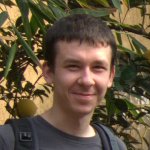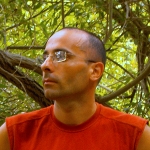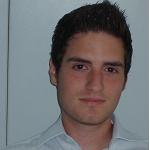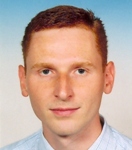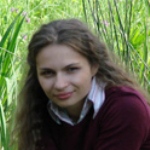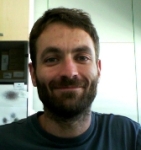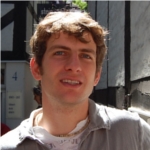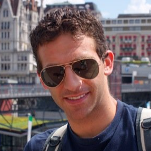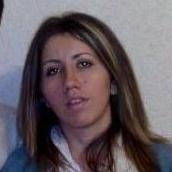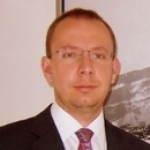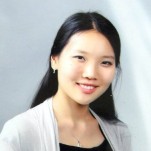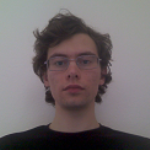|
Mateusz DABROWSKI |
CERN, Geneva - Switzerland |
|
|
I am on fifth year of studies at the Faculty of Physics, the University of Warsaw. Since September 2010 I has been on stage at CERN in BE-BI group. I am working on parameters' analysis of Beam Loss Monitoring system. My main task is to prepare tools for off-line diagnostic and reporting. Due to these reports it is possible to anticipate degradation in the system in advance and therefore to allow a high LHC machine availability. All of these I do using python language, SQL, Scipy libraries and ROOT. |
|
Cesare DELLE FRATTE |
Max Plank Institute für Physik, München - Germany |
|
|
I am System Engineer and Manager for the computing project within the ATLAS group at Max Plank Institute für Physik in München. I am part of the team responsible of the Tier-2 grid computing center at the Rechenzentrum Garching (RZG). My main activities are installations and maintenance of the grid middleware, installation upgrading and maintenance of the storage Dcache system, and support the users from our ATLAS group and from the whole ATLAS collaboration. Previously I was working on the INFN-Roma2 Tier3 computing center after my Physic Degree at Universitá degli Studi di Roma Tor Vergata, and as database and web engineer the Auger cosmic ray experiment. |
|
Darren DEMICOLI |
University of Malta, Msida - Malta |
|
|
Last year I finished my BSc in Computer Science and AI at the University of Malta. My main research area was reliable programming of decentralized distributed systems. Currently I work as a Linux/Unix system administrator and database administrator. My main responsibilities include deployment, configuration and management of servers (mainly RHEL4-6), as well as IBM Informix database administration which includes performing schema changes, configuration tuning, database backups/restores, replication and database storage maintenance. I also get a reasonable firsthand experience with server virtualization and various storage technologies including storage libraries and SAN’s. My future plans include furthering my studies in computational science and performing research in a scientific computing domain. |
|
Zbyněk DRÁSAL |
Charles University Prague – Czech Republic |
|
|
I am a PhD student working on Belle & Belle II experiment at KEKB factory in
Japan. At Belle, the main focus is on time-dependent CP violation
measurements in B mesons decays, namely the determination of CP violation
parameter sin(2β). The main contribution to Belle II experiment consists in
software framework design & development: interface between EvtGen & Geant4,
Geant4 implementation of Belle II tracker system, digitization software of
pixel & strip detectors, pattern recognition.
Furthermore, I have participated on the optimization studies of
Belle II pixel detectors (DEPFET technology) & double-sided strip detectors.
All the development has been performed under Linux operating system,
utilizing MySQL databases, C, C++ and Python programming languages, CMake &
Scons software & construction tools and ROOT system as analysis tool.
Besides, I administrate Debian Linux servers. |
|
Agnieszka DUDZIAK |
The Henryk Niewodniczanski Institute of Nuclear Physics Polish Academy of Science, Krakow - Poland |
|
|
I am a student of PhD studies at the Henryk Niewodniczanski Institute of Nuclear Physics PAS in Cracow. During my Master's Degree I developed expertise not only in different part of physics but also in computer modeling e.g. programming in C/C++ languages, evolutionary algorithms, neural networks and parallel and distributed computing. Moreover I am interested in Python programming language. Presently I am working in Cracow group of LHCb experiment. My research concentrates on exclusive decays of beauty hadrons. In particular, I am working on determining the unitarity triangle angle gamma with the study of B mesons. In free time I love play volleyball. I used to be professional player. |
|
Antonio FALABELLA |
Università di Ferrara - Italy |
|
|
At this moment I am studying the performance and optimization of the B-flavour tagging algorithms. This allows the determination of tagging efficiency, a parameter that enters in any calculation of CP asymmetry measurements. Since last year I am also doing computing shifts at CERN. In this shifts I am required to monitor LHCb jobs on the Grid, data transfer from the experiment, MonteCarlo productions and data reconstruction. Operating systems: Windows Xp, Linux-based OS. Programming Language: C++, Python, Bash shell. Other software: ROOT, RooFit. |
|
Eike FRANK |
University of Bern - Switzerland |
|
|
Currently, I am a PhD student at the University of Bern (Switzerland) in the field of neutrino physics. I studied physics at the University of Hamburg (Germany) and wrote my Diploma thesis about the OPERA neutrino oscillation experiment in 2007. I remained in the field and moved to Bern, where I have focused my work on the T2K experiment in Japan, which recently published its first results. My contributions to the experiment are the magnetic field mapping of the large size magnet of the near detector as well as the analysis of Delta++ production from neutrinos in the near detector. |
|
Raul GARCIA-MARTINEZ |
CERN, Geneva - Switzerland |
|
|
I work developing specific software for Telecom group. I work mainly on maintaining and developing a system to manage and control the phone network at CERN, and as an internal incidents manager to my team and contacting external net operators. These projects are developed in a web application. In addition, I participate in various projects concerning the development and management of the CERN network. Currently I am working with windows 7 and Linux-ubuntu and I am a mac-os user. I also used to work with windows xp. Regarding programming languages, I work with Java (j2ee, jsp, xml) and pl/sql every day. I have also worked with c++ and c#, and in my years at university I used programming languages such as assembly, Haskell, prolog and CLisp, but my knowledge of these is limited. |
|
Raghida HAJJ |
INFN, Legnaro - Italy |
|
|
I am an electronic and computer engineer. I also have a PHD from the university of Limoges in high frequencies electronics. Currently, I am working in the national institute of nuclear physics INFN on the project RareNoise in Padova, Italy. I write codes in c# for the data acquisition and data control using National instruments and programmable power supplies. I have also to create an interface between native codes created with c++ and c #. This will allow me to use c++ libraries based on ROOT for the storage of the data. |
|
Maciej Piotr KEPINSKI |
CERN, Geneva - Switzerland |
|
|
I am a software developer with 3-year experience and strong background in Java and Oracle – originated technologies and tools. Previously I worked mainly as analyst and programmer at major insurance companies. Now, at CERN as a fellow at GS\ASE group, I am responsible for obtaining requirements, developing and maintaining new system called TREC, which will be used to trace radioactive materials coming from the LHC tunnel. In the future this system will replace existing procedures and will be installed in all the LHC buffer zones. For development at CERN I am using PL\SQL, APEX and Java. |
|
Tatyana KHAN |
KISTI, Daejeon – Republic of Korea |
|
|
I finished the Master program majoring in Computer Science at Yonsei University (Seoul, South Korea) in 2010 and joined as a researcher GSDC (Global Science experimental Data hub Center) team at KISTI. One of my currently assigned duties is support of Korea researchers involved in Belle experiment with KEK and data management. Another responsibility is operation management of KiAF (KISTI Analysis Farm) as a part of collaboration work with ALICE experiment. Since I started to work at KISTI my preferable operating system became Linux, though I keep using Windows as necessity from time to time. Mostly I work with bash or Python programming at the moment, but I have had some experience with C/C++, PHP, SQL and etc. as any other CS major. |
|
Igor KULAKOV |
Johann Wolfgang Goethe-University Frankfurt - Germany |
|
|
I am currently working on my PhD in particle physics, mainly at the CBM experiment, but also had some tasks concerning the STAR experiment. Eventual goals are developing fast and efficient online event reconstruction and selection based on the STS and MVD detectors for the CBM experiment; developing fast and efficient track reconstruction for the STAR TPC detector, for offline and HLT. Also, in the future, I can be involved in track reconstruction for other experiments, such as ALICE, R3B and BELLE experiments. Up to now, I've worked with parallelization (SIMD, MIMD(TBB)) of SIMD KF track fit benchmark; parallelization and optimization (efficiency and time) of CBM STS CA track finder; SIMD-ization of CBM RICH ENN ring finder; implementation of ALICE HLT CA track finder algorithm for the STAR TPC and its optimization (efficiency and time). |
